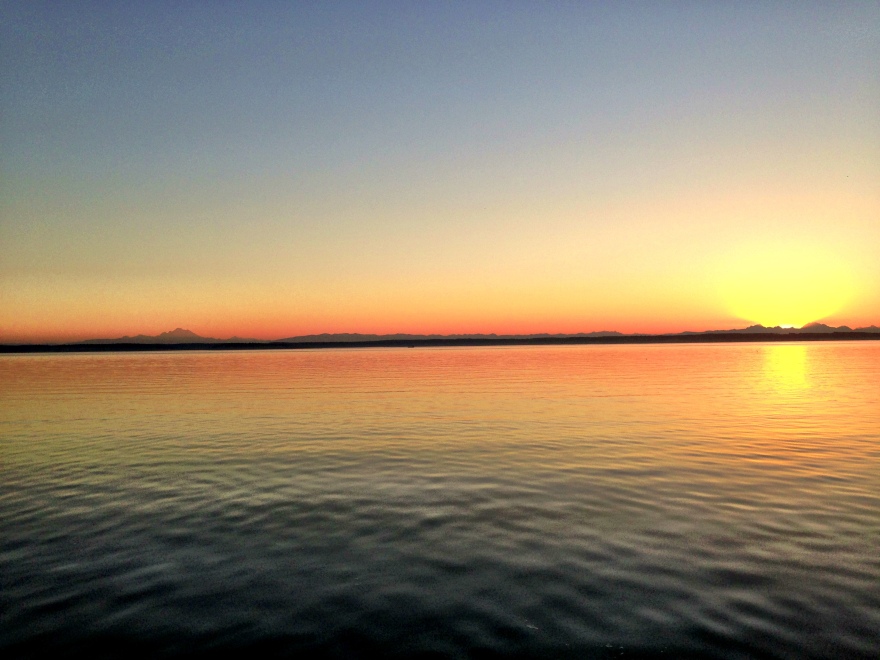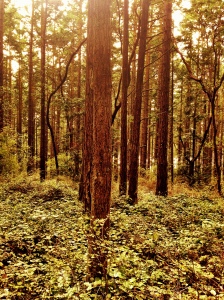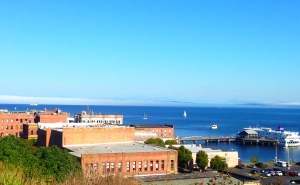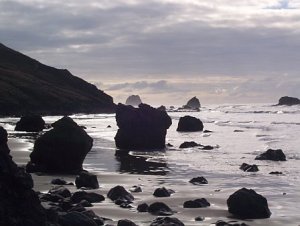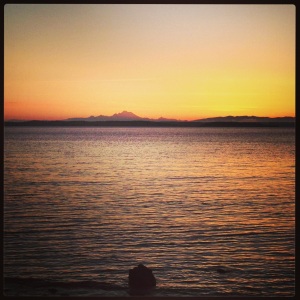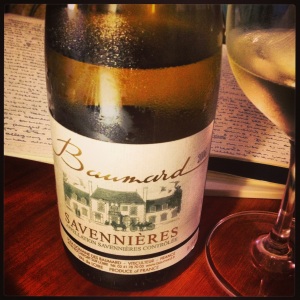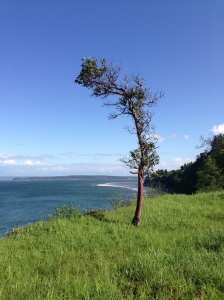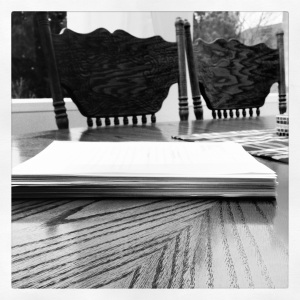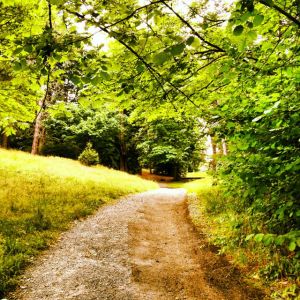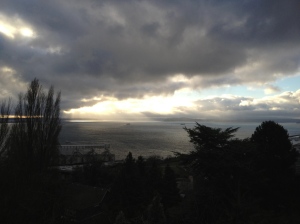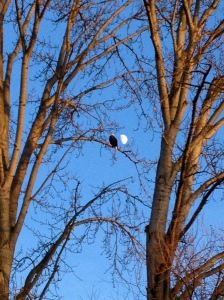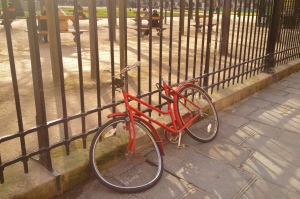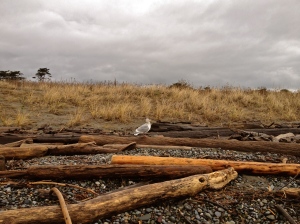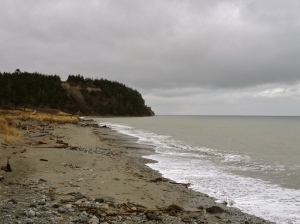“Travel is more than the seeing of sights; it is a change that goes on, deep and permanent, in the ideas of living.” – Miriam Beard
There was never a question that the celebration of our 20th wedding anniversary would involve passports. It was just a matter of where. I recall having plans to celebrate our 15th in Greece, but we found ourselves living in New Zealand that year, so we traded in visions of the cobalt Mediterranean for the reality of the cerulean Pacific. Not a bad deal. Greece is back on the table for our 25th. Italy sat at the tippy-top of the list for a long while. I've travelled it knee to toe; Brendan and I have been to the Veneto and Trentino together. But there is so much we want to do in Italy, we couldn't decide where to start. Italy got reshuffled back into the deck.
Southeast Asia was mentioned. Enchanted by Cambodia and Vietnam during his stay in 2005 as a Fulbright Teacher-Scholar, Brendan can't wait to return with me and I can't wait to go. But it requires more preparation and planning than we have energy for right now. Then there's that walking and whisky tour of Scotland we've mapped out, with a long weekend in Iceland on the way over. Maritime Canada. Mongolia. I've been after South Africa for some time now and I've just about got Brendan convinced, but not in time for this year.
At some point in early spring we realized we were over-thinking the whole program. If you know us, you know we'd pick up sticks tomorrow and move (back) to France. France forms the foundation of our dreams. It is where we both entered adulthood, Brendan working at a family-run vineyard and Cognac distillery the year after he graduated the University of Oregon, I studying at the University of Savoie. It is the reason we met, a shared struggle over Proust in Advanced French Literature. Brendan was completing his teaching certificate at the same university where I was finishing a double major after a year studying in Chambèry and a summer teaching in Japan. We've returned to France several times over the years, mostly together, on occasion alone.
When we moved to Seattle from New Zealand, we did not resume our former careers as a high school teacher (Brendan) and study abroad program manager (me). This meant no more summers off for Brendan and the drying up of my frequent flyer mileage account. We determined that for the next few years, given the demands of our jobs that zap time and energy for complicated journeys, we'd limit our travel to the one place we know we love, where every visit solidifies our desire to make a life there, someday: France. It is travel with a strategy. We keep up our language skills and culture specific know-how while scoping out long-term possibilities (I'm talking retirement here, people, nothing like a little 20 year vision). We visit a new region each time, staying in one place to really learn it, then end the trip with a couple of days in Paris. We even have "our" hotel in Paris. It is never work to plan, but it's an adventure from start to finish.
This year, for our 20th, Burgundy called. We decided to base ourselves in Beaune and bike the countryside, rent a car for a long weekend hop over the German border to visit friends in Freiburg, take a few day trips by train south to Macon and Beaujolais; we'd drink and eat and bike our way through one of the most beautiful regions of France we've never seen. Done deal.
So, we're headed to Ireland. Come Wednesday, our anniversary, we'll be lacing up our hiking boots and setting stride along the Kerry Way.
It's been a year of tremendous change and turmoil. Events exhilarating and exhausting have left us with such a need for peace, reflection and a complete unplug from our current of thoughts. One afternoon as we mulled over where to pick up the rental car, which weekend to dash to Germany, if we should bypass Paris to spend a weekend in Champagne, Brendan turned to me and said, "Let's go to Ireland." In that instant, I knew. I felt immediate peace.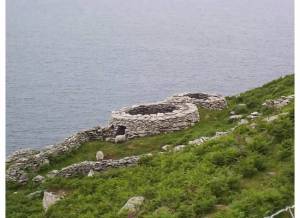
By just speaking the word "Ireland" aloud, I feel my heart rate slow, my shoulders relax, my jaw loosen. I envision those long, quiet hours on a trail, surrounded by every shade of green, blue, gray and gold the fields, sea and sky can offer, the clouds overhead as creamy white as the sheep that watch us as we tramp through their paddock.
This will be our fourth trip to Ireland in ten years. We do the same thing, in a different area, each time. And that thing is The Walk. We surrender all planning to the darling, generous, efficient, tremendous team at Southwest Walks Ireland. We simply arrive when and where we are told. We rest and rise the next morning to begin days and days of walking. There is a map, we have our packs, we hike hill and dale, stopping to marvel, rest, eat, talk when and where we will, trusting we will find our way each day to that night's lodging. In the evenings there is a snug B&B, a warm pub, a steaming bowl of stew, a Paddy's over ice or a pint of Guinness with a head taller than my hand is wide. There is music, there is silence. And always, every day, there is the long, long walk. 
In the early days we stick together, chatting, bubbling over all the things we haven't had time to share in the rush of days and weeks when we hardly see one another. But soon we fall silent. Words are no longer necessary when your hearts are in perfect synchronicity.
Warm beaches on remote islands or ocean liners on the high seas don't interest us. We both rest best when we are in motion - it is a mélange of play and exercise that allows us to let go of the pressures and expectations of our everyday lives and brings us back to the sweet and simple people we are at heart. Walking our way through a holiday adds a significant dose of zen - there is nothing more meditative than the motion of one foot in front of the other for hours on end. And nothing more delightful knowing you do not walk alone.
This is a bittersweet journey. We embarked on our last visit, in 2006, just a month before we moved to New Zealand. An enormous adventure blossomed before us, dreams on the cusp of being realized. Thinking of all that has happened in the intervening six years just rocks me. Starting over more times than we'd bargained for. Saying goodbye far too often - to loved ones, to babies, to dreams. It is staggering.
We shared that last hike in Ireland with two of our dearest friends, two men as in love and committed as Brendan and I could ever hope to be, who had been together at least as long as the anniversary we celebrate now. We made plans during that hike that they would join us in New Zealand when their retirements were finalized; we'd open a café, have a small farm... One of those men is gone now, taken by cancer. Even after two years, my life will never be as bright without Peter in it.
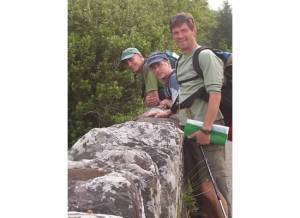
Ireland is in celebration our lives together, this amazing adventure that we've lived in the 20 years, 5 months and ten days that have passed since our first date. It is to recapture peace that we have lost in a tumultuous year. And it's to touch that fragile, tender part of the soul that needs looking after, before you set it free to dream again.
“I soon realized that no journey carries one far unless, as it extends into the world around us, it goes an equal distance into the world within.” – Lillian Smith
*All that is gold does not glitter, Not all those who wander are lost; The old that is strong does not wither, Deep roots are not reached by the frost. - Gandalf, "Lord of the Rings: The Fellowship of the Ring" by J.R.R. Tolkien
